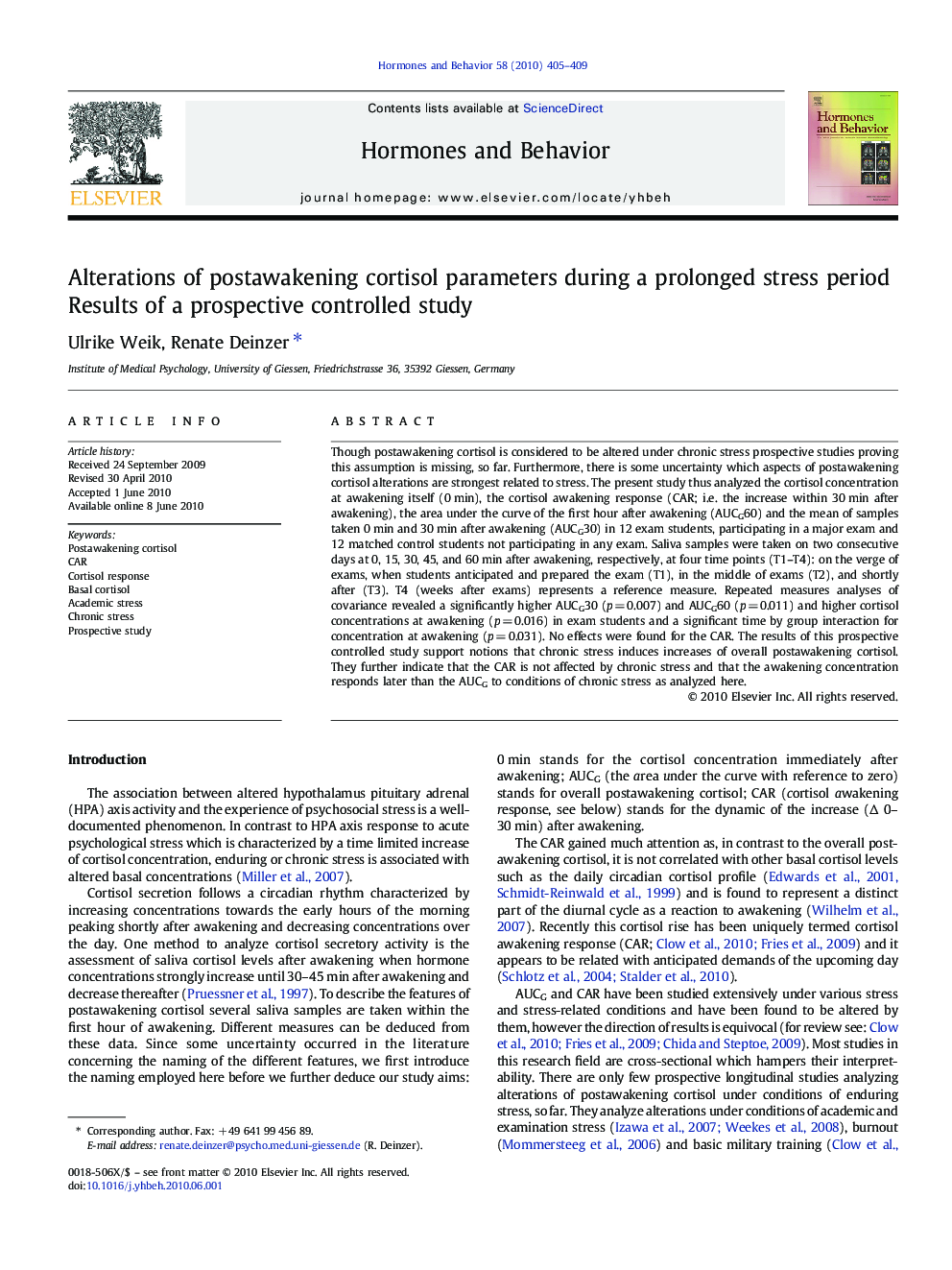| Article ID | Journal | Published Year | Pages | File Type |
|---|---|---|---|---|
| 323480 | Hormones and Behavior | 2010 | 5 Pages |
Though postawakening cortisol is considered to be altered under chronic stress prospective studies proving this assumption is missing, so far. Furthermore, there is some uncertainty which aspects of postawakening cortisol alterations are strongest related to stress. The present study thus analyzed the cortisol concentration at awakening itself (0 min), the cortisol awakening response (CAR; i.e. the increase within 30 min after awakening), the area under the curve of the first hour after awakening (AUCG60) and the mean of samples taken 0 min and 30 min after awakening (AUCG30) in 12 exam students, participating in a major exam and 12 matched control students not participating in any exam. Saliva samples were taken on two consecutive days at 0, 15, 30, 45, and 60 min after awakening, respectively, at four time points (T1–T4): on the verge of exams, when students anticipated and prepared the exam (T1), in the middle of exams (T2), and shortly after (T3). T4 (weeks after exams) represents a reference measure. Repeated measures analyses of covariance revealed a significantly higher AUCG30 (p = 0.007) and AUCG60 (p = 0.011) and higher cortisol concentrations at awakening (p = 0.016) in exam students and a significant time by group interaction for concentration at awakening (p = 0.031). No effects were found for the CAR. The results of this prospective controlled study support notions that chronic stress induces increases of overall postawakening cortisol. They further indicate that the CAR is not affected by chronic stress and that the awakening concentration responds later than the AUCG to conditions of chronic stress as analyzed here.
